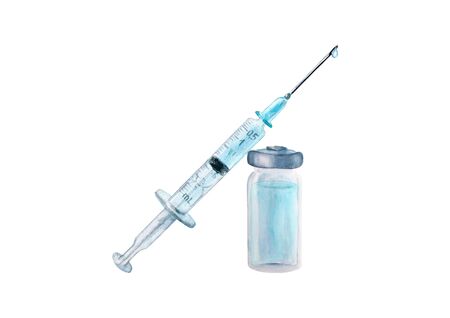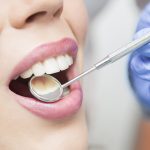1. Understanding Collagen and Its Role in the Skin
Collagen is a protein that acts as the building block for your skin, hair, nails, and connective tissues. Think of it as the framework that keeps your skin firm, smooth, and elastic. In fact, collagen makes up about 75% of your skin’s structure. It’s what gives your face that youthful plumpness and helps prevent sagging and wrinkles.
What Exactly Is Collagen?
Collagen is naturally produced by our bodies, especially during our younger years. Its made up of amino acids like glycine, proline, and hydroxyproline. These help build strong fibers that support your skin’s shape and strength.
Why Collagen Matters for Youthful Skin
As we age, our bodies start to produce less collagen—usually starting in our mid-to-late 20s. This decrease leads to common signs of aging like fine lines, wrinkles, and skin that looks less firm or bouncy.
Main Functions of Collagen in Skin:
| Function | How It Helps Your Skin |
|---|---|
| Elasticity | Keeps skin stretchy and able to bounce back |
| Firmness | Maintains tightness and structure of skin |
| Smooth Texture | Reduces appearance of fine lines and rough patches |
| Hydration Support | Helps retain moisture by supporting other proteins like hyaluronic acid |
How Aging Affects Collagen Production
The natural aging process slows down collagen production every year. External factors like sun exposure, smoking, stress, lack of sleep, and poor diet can speed up this decline. When collagen levels drop, the skin becomes thinner, drier, and more prone to wrinkles.
Signs That Your Collagen Levels May Be Decreasing:
- Skin feels looser or less firm
- More visible wrinkles or fine lines
- Dull or uneven skin tone
- Slower wound healing
Understanding how collagen works is the first step to maintaining healthy, youthful-looking skin as you age. In the next section, we’ll explore exactly how aging impacts collagen levels and what lifestyle changes or treatments can help preserve it.
2. How Aging Affects Collagen Production
As we age, one of the most noticeable changes in our skin is the loss of firmness and elasticity. This change is closely tied to a natural decline in collagen production. Collagen is a protein that provides structure and strength to our skin, but starting as early as our mid-20s, the body begins to produce less of it each year.
Natural Decline Over Time
The reduction in collagen isnt sudden—it happens gradually. By the time we reach our 30s, collagen production decreases by about 1% each year. This means thinner skin, more fine lines, and a gradual sagging appearance as we get older.
| Age Range | Collagen Production Trend |
|---|---|
| 20s | Peak production |
| 30s | Begins to decline (~1% per year) |
| 40s | Noticeable decrease; signs of aging become visible |
| 50s+ | Significant drop; skin loses firmness and volume |
Factors That Accelerate Collagen Loss
While aging naturally reduces collagen levels, certain lifestyle and environmental factors can speed up this process:
- Sun exposure: UV rays break down collagen fibers and slow new production.
- Smoking: Reduces blood flow to the skin and introduces toxins that damage collagen.
- Poor diet: Lacking nutrients like vitamin C and amino acids can hinder collagen synthesis.
- Lack of sleep: Your body repairs itself during deep sleep—including collagen regeneration.
- Stress: High cortisol levels can negatively impact your skin’s ability to maintain collagen.
The Impact on Skin Texture and Structure
As collagen levels fall, your skin starts to show visible signs of aging. Heres how it affects the way your skin looks and feels:
- Loss of elasticity: Skin becomes less able to bounce back, leading to sagging.
- Wrinkles and fine lines: Reduced support under the surface leads to creasing.
- Dryness and thinning: Less collagen means less hydration retention, making skin appear dull.
- Larger pores: When skin loses its firmness, pores may look more pronounced.
Aging is a natural process, but understanding how collagen production changes over time gives you the power to take better care of your skin at every stage of life.
![]()
3. Lifestyle Factors That Decrease Collagen Levels
As we age, our bodies naturally produce less collagen. But did you know that certain lifestyle habits can speed up this process? In the U.S., many everyday routines and environmental exposures play a big role in premature aging and collagen loss. Understanding these factors can help you make better choices to support your skin health.
UV Exposure: The Sun’s Hidden Damage
Sunlight is one of the biggest enemies of collagen. Ultraviolet (UV) rays penetrate deep into the skin and break down collagen fibers. This leads to wrinkles, sagging skin, and sunspots. Even short periods of sun exposure without protection can add up over time.
What You Can Do:
- Wear broad-spectrum sunscreen daily, even on cloudy days
- Use protective clothing like hats and sunglasses
- Avoid tanning beds altogether
Smoking: A Collagen Killer
Smoking doesnt just hurt your lungs—it also damages your skin. The chemicals in cigarettes reduce blood flow and oxygen to the skin, which slows down collagen production. Smokers often develop deep wrinkles around the mouth and eyes earlier than non-smokers.
What You Can Do:
- If you smoke, consider quitting—your skin (and body) will thank you
- Avoid secondhand smoke when possible
Poor Diet: You Are What You Eat
Your diet has a major impact on your skins ability to produce collagen. A high intake of sugar and processed foods can trigger inflammation and damage existing collagen. On the flip side, nutrient-rich foods can boost collagen production naturally.
Foods That Hurt vs. Help Collagen:
| Harmful Foods | Helpful Foods |
|---|---|
| Sugary snacks & sodas | Citrus fruits (Vitamin C) |
| Processed meats | Berries & leafy greens (Antioxidants) |
| Fried foods | Bone broth & lean proteins (Amino acids) |
Stress: The Silent Agitator
Chronic stress increases levels of cortisol, a hormone that breaks down collagen over time. High-stress lifestyles—common in fast-paced American culture—can show up on your face as fine lines, dullness, and slower healing skin.
What You Can Do:
- Practice mindfulness techniques like meditation or yoga
- Get enough sleep every night (7–9 hours recommended)
- Make time for hobbies and social connections to lower stress levels
By understanding how daily choices impact your collagen levels, you can take simple steps to protect your skin from premature aging. Small changes today can lead to healthier, more youthful-looking skin tomorrow.
4. Ways to Boost Collagen Naturally
Aging naturally slows down collagen production, but the good news is there are simple and natural ways to help your body maintain and even boost collagen levels. By making a few lifestyle adjustments, you can support your skin’s elasticity and overall health.
Eat Collagen-Boosting Foods
Your diet plays a big role in collagen production. Certain foods are rich in the nutrients your body needs to create collagen.
| Food | Key Nutrients | How It Helps |
|---|---|---|
| Bone Broth | Collagen, Amino Acids | Provides direct sources of collagen proteins |
| Citrus Fruits (oranges, lemons) | Vitamin C | Supports collagen synthesis |
| Berries (strawberries, blueberries) | Antioxidants, Vitamin C | Protects skin from free radical damage |
| Leafy Greens (spinach, kale) | Vitamin C, Chlorophyll | Stimulates collagen production |
| Egg Whites | Proline, Lysine | Amino acids needed for collagen formation |
Stay Hydrated
Water helps keep your skin plump and elastic. When youre dehydrated, your skin may appear dry and wrinkled, which can make signs of aging more noticeable. Aim to drink at least eight 8-ounce glasses of water a day—or more if youre active or live in a dry climate.
Adopt a Skincare Routine with Collagen-Boosting Ingredients
The right skincare products can support your skin’s natural ability to produce collagen. Look for these ingredients when choosing serums or moisturizers:
- Retinol: A form of Vitamin A that encourages cell turnover and boosts collagen.
- Peptides: Short chains of amino acids that signal the skin to produce more collagen.
- Vitamin C: Protects against UV damage and stimulates collagen synthesis.
- Hyaluronic Acid: Keeps skin hydrated and supports collagen structure.
Lifestyle Tips That Make a Difference
- Avoid smoking: Smoking breaks down collagen and reduces oxygen flow to the skin.
- Limit sun exposure: UV rays can speed up collagen breakdown—wear sunscreen daily.
- Get enough sleep: Your body repairs itself while you sleep, including rebuilding collagen.
- Exercise regularly: Promotes better circulation and delivers nutrients to your skin.
Naturally supporting your collagen levels doesnt have to be complicated. With healthy food choices, smart skincare habits, and a few daily routines, you can help your skin look firmer, smoother, and more youthful over time.
5. Popular Treatments for Collagen Restoration
Aging naturally reduces collagen production, which can lead to fine lines, wrinkles, and a loss of skin firmness. Fortunately, there are several advanced treatments that can help restore collagen levels and give your skin a more youthful appearance. Here are some of the most popular and effective options used in the U.S.
Microneedling
Also known as collagen induction therapy, microneedling involves using tiny needles to create micro-injuries on the skin’s surface. This process triggers your body’s natural healing response and stimulates collagen and elastin production. It’s a minimally invasive treatment with little downtime, making it a favorite among people looking for smoother, firmer skin.
Benefits of Microneedling:
- Improves skin texture
- Reduces appearance of scars and fine lines
- Boosts collagen naturally
- Safe for most skin types
Laser Therapy
Laser treatments use focused light energy to target deeper layers of the skin, promoting collagen remodeling without damaging the surface. Different types of lasers (like fractional CO2 or non-ablative lasers) are available depending on your skin concerns and desired results.
Popular Laser Options:
| Laser Type | Main Benefit | Downtime |
|---|---|---|
| Fractional CO2 Laser | Deep wrinkle reduction & skin tightening | Moderate (several days) |
| Non-Ablative Laser | Mild rejuvenation with minimal discomfort | Low (1–2 days) |
Bio-Stimulating Injectables
Unlike traditional fillers that simply add volume, bio-stimulating injectables like Sculptra® or Radiesse® work by stimulating your body’s own collagen production over time. These injectables gradually improve skin texture and elasticity, offering long-lasting results.
Why Choose Bio-Stimulators?
- Stimulate natural collagen growth
- Results develop gradually for a more natural look
- Longer-lasting than traditional fillers (up to 2 years)
Choosing the Right Treatment for You
The best treatment depends on your individual goals, skin type, and how much downtime you’re comfortable with. Consulting with a licensed dermatologist or aesthetic provider will help you decide which option is right for you.
Quick Comparison of Collagen-Boosting Treatments:
| Treatment | Main Benefit | Invasiveness | Downtime |
|---|---|---|---|
| Microneedling | Smoother texture, reduced scars/fine lines | Minimally invasive | 1–3 days |
| Laser Therapy | Tightens & resurfaces skin | Mild to moderate invasiveness | 1–7 days (depending on laser type) |
| Bio-Stimulating Injectables | Gradual collagen boost & volume restoration | Minimally invasive (injection) | Largely none or very minimal |
No matter which route you choose, these modern treatments can help bring back that youthful glow by encouraging your body to do what it once did naturally—produce collagen.
6. Choosing the Right Approach for Your Skin
As we age, collagen production naturally slows down, leading to common signs of aging like fine lines, wrinkles, and sagging skin. But here’s the good news—there are multiple strategies available to support collagen health. The key is finding what works best for your unique skin type, lifestyle, and long-term goals.
Understanding Your Skin Type
Before choosing any collagen-boosting treatment or skincare routine, it’s important to understand your skin type. This helps ensure you’re selecting products and treatments that won’t irritate your skin or cause other unwanted side effects.
| Skin Type | Characteristics | Recommended Approach |
|---|---|---|
| Oily | Shiny appearance, prone to acne and enlarged pores | Lightweight serums with retinol or peptides; avoid heavy creams |
| Dry | Flaky, tight-feeling skin with a dull tone | Hydrating moisturizers with hyaluronic acid and ceramides |
| Sensitive | Easily irritated, redness or stinging with some products | Fragrance-free formulas; gentle ingredients like niacinamide |
| Combination | Oily in the T-zone but dry on cheeks | Balanced skincare; use targeted treatments for different areas |
Aligning Strategies With Your Goals
Your skincare approach should also reflect your personal goals. Are you trying to prevent early signs of aging, reduce existing wrinkles, or improve overall skin firmness? Each goal may require a slightly different plan:
| Skin Goal | Effective Strategies |
|---|---|
| Prevent Early Aging | Sunscreen daily, antioxidant-rich diet, gentle cleansers and moisturizers with peptides or vitamin C |
| Reduce Wrinkles & Fine Lines | Topical retinoids, microneedling treatments, collagen-stimulating serums |
| Improve Firmness & Elasticity | Radiofrequency or ultrasound-based therapies, regular use of firming creams containing peptides and growth factors |
Expert Tips for Long-Term Skin Health
- Consistency is key: Stick to your routine. Collagen-building takes time.
- Avoid over-exfoliation: Too much exfoliation can damage the skin barrier and slow collagen regeneration.
- Nourish from within: A balanced diet rich in vitamins A, C, and E supports natural collagen production.
- Professional guidance matters: Consult a licensed dermatologist or aesthetic provider before starting advanced treatments like lasers or injectables.
- Lifestyle choices count: Minimize sun exposure, quit smoking if applicable, and manage stress levels to protect collagen reserves.
The Bottom Line: Personalization Matters
No two people have the exact same skin journey. What works wonders for one person might not be right for another. By understanding your skin type and aligning your strategy with your personal goals, you’ll be better equipped to make informed decisions that help preserve your skins youthful glow for years to come.


